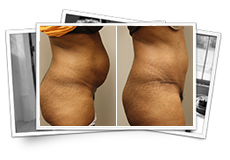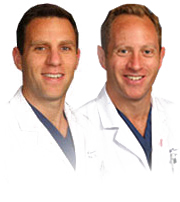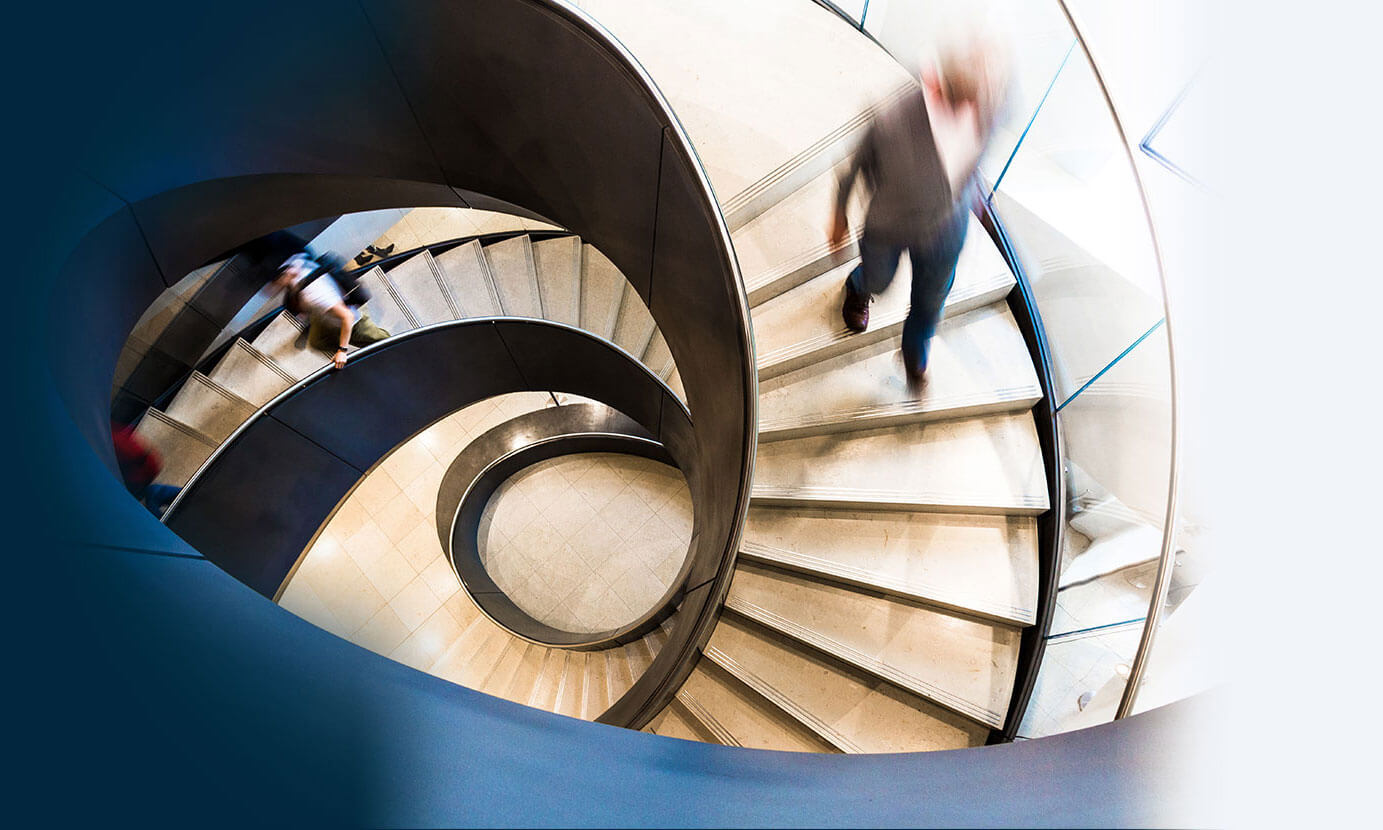Hernia Repair Thousand Oaks
An abdominal hernia, or ventral hernia, is a hole in the layers of the abdomen through which the intestines protrude. This type of hernia most often occurs following previous abdominal surgery. The deeper layers of the incision can come apart, allowing the intestines or the fat surrounding them to protrude through the abdominal wall.
Before & After Photos
 Hernia Repair
Hernia Repair
At the Kryger Institute of Plastic Surgery, we have experience in a vast array of surgical and non-surgical procedures. Click below to see some before and after photos of hernia repairs.
The straight-forward abdominal hernia is usually managed by the general surgeon-typically, the surgeon who did the initial operation. Generally, a piece of mesh is used to cover the hole. However, in some cases, the hernia can be massive or complicated by factors such as obesity, infection, fistula (bowel contents leaking through the skin), failure of a previous repair, or a problem with the overlying skin. In such cases, a more complex approach to reconstructing the hernia is required. The expertise of a reconstructive plastic surgeon trained in abdominal wall reconstruction is required. The surgeons at the Kryger Institute of Plastic Surgery have a special interest in repairing complex abdominal or ventral hernias.
Who is a good candidate?
If you have a hernia of the abdominal region following a previous surgery you may be a candidate. Even if you have failed a previous repair with or without the use of mesh you still have reconstructive options. Patients who are obese or have other complicating factors such as infection or drainage of fluid from the skin overlying the hernia can still be considered for surgery.
If you have significant heart or lung disease and are in very poor overall health you may not be well enough to undergo surgery. This decision will be made jointly by your primary care physician, the plastic surgeon and any other specialist who cares for you (e.g. cardiologist or pulmonary specialist).
Will my insurance cover the surgery?
In almost all cases, your insurance will cover the cost of surgery. They may still require a co-pay on your part. Either way, the insurance specialist at the Kryger Institute will make every effort to ensure that your insurance carrier pays for your procedure.
Can abdominal hernia repair be combined with other surgeries?
In some cases, it may actually be beneficial to perform an additional procedure at the time of the hernia repair. For example, morbidly obese patients who have a large pannus of overhanging abdominal skin may benefit from undergoing a panniculectomy at the time of hernia repair. Another situation when combining procedures may be appropriate is if your general surgeon or gynecologist is planning on performing any intra-abdominal surgery. This can be done at the time of the hernia repair. Elective cosmetic surgery should never be done at the time of abdominal wall reconstruction due to the increased risks associated with this.
How do I prepare for the surgery?
Prior to surgery, you will have to see your primary care physician to be cleared for surgery. This will include recent blood work and an EKG. If you have heart or lung disease, you may be required to obtain other tests before surgery in order to ensure that you are in the best possible shape to undergo surgery. Finally, you will have to have a CT scan of the abdomen before surgery in order to help your plastic surgeon precisely plan the surgery.
Tell your plastic surgeon about all your medical problems and what medications you take (prescription, non-prescription, and herbal remedies). If you take blood thinners such as Plavix or Coumadin, these usually must be stopped before surgery. Your plastic surgeon will tell you how many days before surgery to stop taking them. Over the counter medications such as ibuprofen, Alleve, and aspirin must also be stopped- at least 7 days before surgery. Make sure to discuss any previous surgeries and to obtain the operative reports of all abdominal surgery or hernia repair you have undergone. If you smoke, you are at an increased risk of developing a complication from surgery. You will be required to quit for 6 weeks before and 6 weeks after surgery.
Depending on the size and nature of your hernia, you may be required to undergo a “bowel prep” before surgery. This is very similar to the bowel prep done before a colonoscopy. This means taking a laxative prescribed by your surgeon that will help clean out your intestines prior to surgery. Finally, be sure to follow all the instructions given to you the day before surgery. This includes not eating or drinking anything after midnight. If you get sick and have to cancel your surgery for any reason, please notify our office as soon as possible.
What can I expect the day of surgery?
The morning of surgery, your surgeon will answer any last minute questions you have. He will mark the incisions on your abdomen. In some cases, the surgery can be done through your existing scar. Often, two small incisions on either side of the abdomen (just below the rib cage) are required. In more complex hernia repairs, additional incisions may also be needed. Your surgeon will be able to explain to you exactly what he is planning to do and what scars you will be left with.
The surgery itself can take anywhere from 2-6 hours depending on the complexity and nature of your hernia. For example, a combined general surgery-plastic surgery team approach will add extra time to the operation.
An overview of the steps of the procedure are as follows (these will vary depending on the extent of the hernia):
- Any previous mesh and/or infected skin is removed
- The intestines are separated from the abdominal wall and the hernia sac
- The abdominal wall layers are separated (separation of parts), allowing a tension-free closure of the hernia
- A mesh (either synthetic or biologic) is placed underneath the incision
- The incision is closed over the mesh as a second layer
- Drains are placed (2-4 drains) and the skin is closed
What kind of dressings will I have and when can I shower?
Your incisions will be covered by a clear tape dressing that is removed a few days after surgery. You will usually have an abdominal binder that helps prevent you from straining the fresh repair. It should be worn at all times. It can be loosened when you are lying in bed or sitting in a chair, but should be tight when you are walking around. You can shower 1-2 days after surgery.
What can I expect following surgery? How much pain is there?
A hospital stay of 3-7 days is required after abdominal wall reconstruction. Rarely, one night’s stay in the intensive care unit may be required for patients who have bad heart or lung disease. You will probably spend the rest of the day of surgery in bed, but by the next day you will be out of bed and moving around. The day after surgery you can usually begin having sips of water. Once your bowel function returns (this usually takes 2-5 days), you can begin drinking liquids and then eating regular food.
Pain can vary from moderate to severe. It is impossible to predict exactly how much pain you will have. Over the course of the first couple of days you will receive intravenous pain medication. For some patients an epidural catheter can be placed by the anesthesiologists at the time of surgery. This provides excellent pain relief in the early postoperative period. Once you begin drinking and eating, you are transitioned to oral pain medication. Most people’s pain is adequately controlled with oral medication by the time they are ready to go home.
At the Kryger Institute, we understand that some patients have a history of having severe pain after surgery. If this is the case, we will work closely with you, the anesthesiologists, and the pain service in order to everything possible to make your recovery as comfortable as possible.
What if I have a problem after I go home?
Always call the office if you think something is wrong or you have a concern. At the Kryger Institute of Plastic Surgery, we welcome phone calls from patients. You can reach your surgeon 24 hours a day in case of an emergency. If it is something minor, you can be seen the following day by one of our surgeons. If it is a true emergency, you will be directed to go to the emergency room. Always have the emergency room physician call your surgeon directly.
Meet Our Surgeons
 Our surgeons have over a decade of experience in Plastic & Reconstructive Surgery, and have a record of exceptional results. Learn more about our surgeons or request a consultation.
Our surgeons have over a decade of experience in Plastic & Reconstructive Surgery, and have a record of exceptional results. Learn more about our surgeons or request a consultation.

